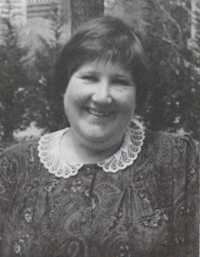Issue 10
Term 3 1994
News from the Information Program Continued
SEARCHING THE MICROFICHE
"I can't find it on the microfiche" is a frequently heard problem from users of the microfiche. Before you reach the limits of frustration, try these three possibilities which may account for a number of those 'missing' items.
1. Frame Index (or grids)
Reading from the frame or grid index at the bottom right hand side of each sheet it may seem that, alphabetically, the item is not there. However, this index shows only the first entry in each of the frames on the sheet. Select the entry alphabetically nearest to the item you are seeking and then search through the frame. For example:
M10 Nature and the universe / National Geographic Society
M11 Nature/by Georgiana Williams
You want 'Nature and the world' but the nearest to this is M10. Therefore select that frame and scan through.
2. Filing
Searching the title index on the abbreviated microfiche can be particularly frustrating. All microfiche filing follows the basic filing rule as set out in 'ALA rules for filing catalog cards', where on page 2 it says to "arrange all entries .... word by word, alphabeting letter by letter within the word."
It also directs us to apply the principal of "nothing before something, considering the space between the words as nothing. Thus a single letter or shorter word precedes a longer word beginning with the same letter or letters."
Punctuation, including slashes, is disregarded, and the articles 'a', 'an', and 'the' are not included in the filing at the beginning of an entry.
These principles include both the title and statement of responsibility.
Some examples:
Natural habits/John Smith
Nature: a story of the world we live in/Jill Adams
Nature and the universe/National Geographic Society
Nature/by Georgiana Williams
Nature/Peter Jones
A nature story book/Enid Bleeton
Nature's secrets/ edited by Jim Jones
3. Scanning
Scanning is a useful habit which often leads to unexpected success. Apart from finding the elusive item, scanning can also increase efficiency by becoming familiar with the set-out and flow of the frames, seeing how split entries continue from one frame to the next, and stumbling upon other titles appropiate for your collection. Even though time is always in short supply, it is not always wasted when experimenting this way.
If all this fails to find your material it is quite likely that they have not been catalogued yet, and therefore are not on the database. For further assistance contact your state cataloguing agency, present in most states and part of the state's education system.
